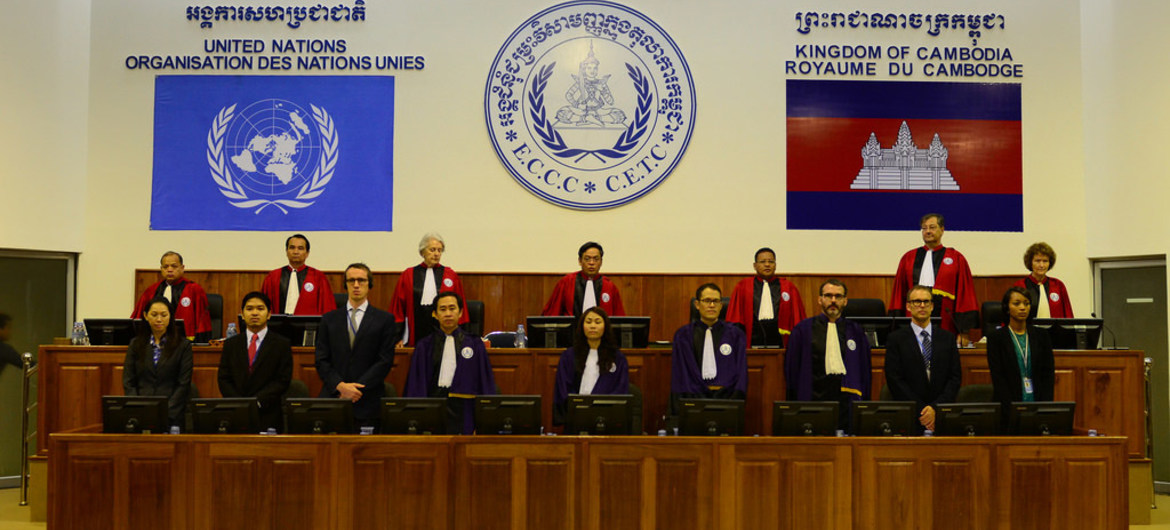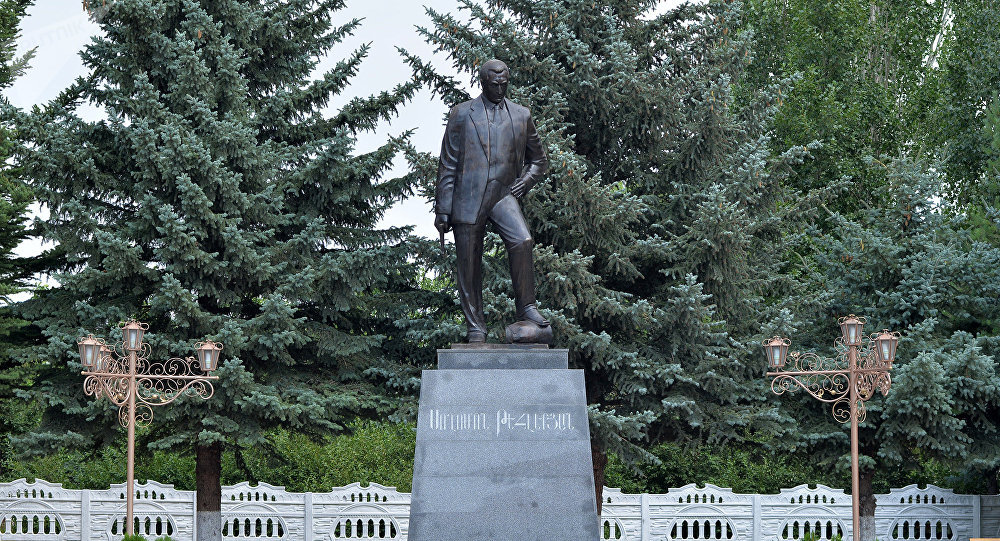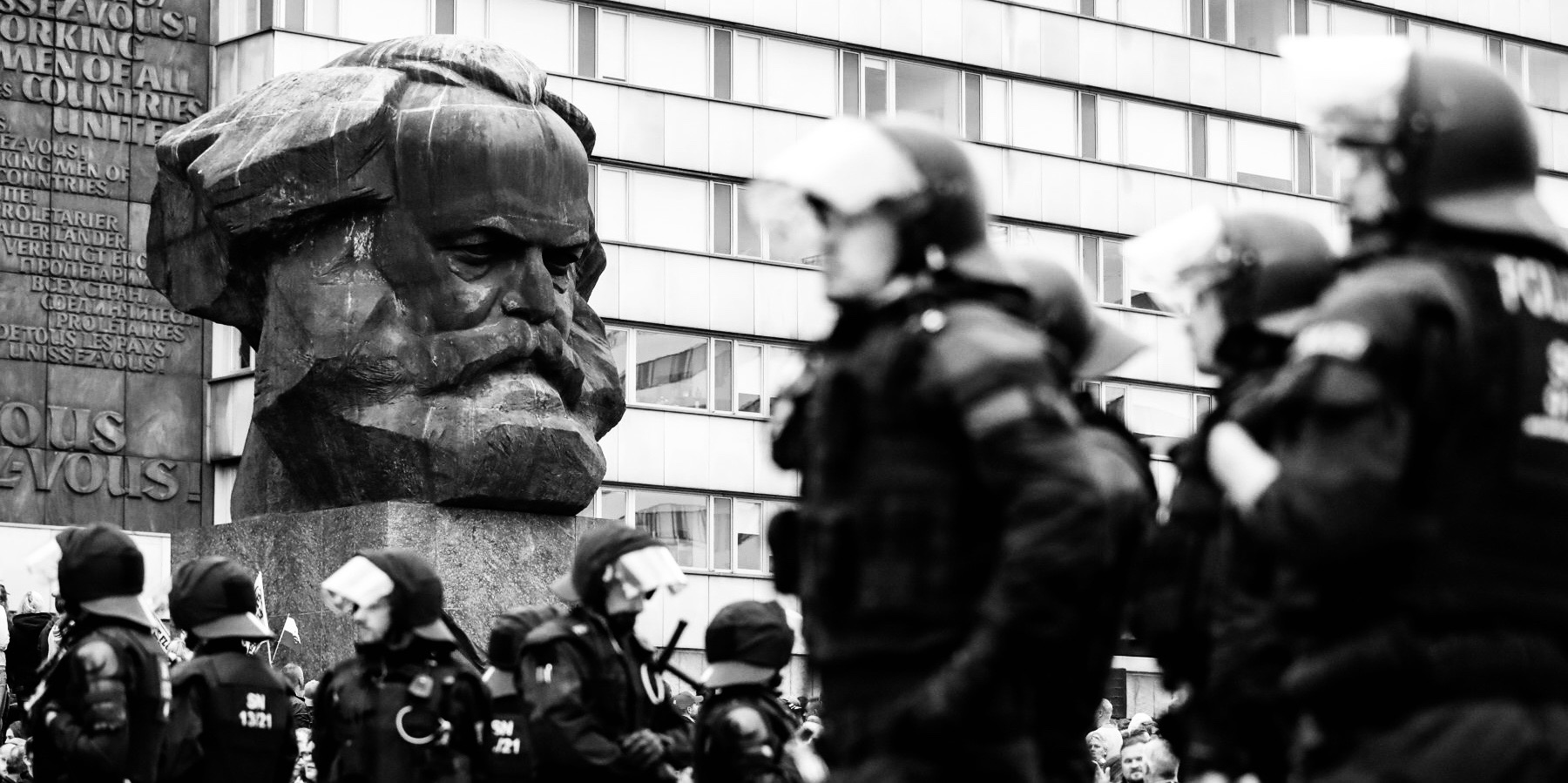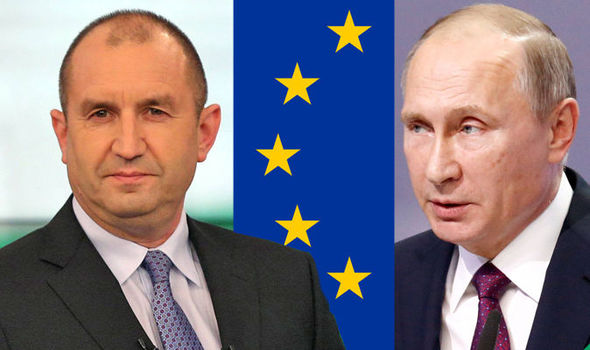
The Nikol Pashinyan government of Armenia is currently in the midst of a difficult normalization process with its neighbors Türkiye and Azerbaijan. After the defeat suffered during the Second Karabakh War of 2020 and Azerbaijan taking back full control of Karabakh in September 2023, the Pashinyan government was forced to acknowledge that the intransigent stance of the previous Armenian governments has led to Armenia being cut off from its most logical access route (Türkiye) to Western countries, has isolated Armenia from regional cooperation frameworks in the South Caucasus, and has made it overly reliant on Russia. To rescue itself from this predicament, Armenia needs to establish diplomatic relations with Türkiye and sign a peace treaty with Azerbaijan, while trying to alleviate the concerns of the nationalistic segments of Armenian society who argue that the Armenian government is giving too many concessions to its historic “enemies”. One of the staunchest critics of the Pashinyan government in this regard is not a political actor, but rather the Armenian Apostolic Church.
Like all other Orthodox churches for their respective countries,[1] the Armenian Apostolic Church is the national church of the Armenian people and has, throughout history, played a significant role in the formation, promotion, and protection of Armenian identity. It is therefore natural for the Church to express concern for any development that it considers to be harmful to the interests of the Armenian people. However, ever since Nikol Pashinyan came to power in 2018, the relationship between the Church and the Government in Armenia has steadily deteriorated. By 2023, the Church began to behave more like an opposition party rather than a religious institution when it came to the Pashinyan government’s policies. Church officials have also begun to meet with the officials of opposition parties with the hopes of presenting a united front against the Government.[2]
The central point of contention between the Church and the Government is about Armenia’s efforts to repair its bilateral relations with both Türkiye and Azerbaijan. This involves Armenia recognizing its current borders with Türkiye, refraining from making references to “Western Armenia” (Eastern Anatolia of Türkiye), stopping the use of genocide allegations as a foreign policy tool against Türkiye, recognizing the Karabakh region as belonging to Azerbaijan, and carrying out border demarcation and enclave-exclave exchange with Azerbaijan. All of these are made complicated by the entrenched, irredentist political rhetoric in Armenia that leaves little room for compromise. A significant portion of the Armenian public has been indoctrinated into believing that large swathes of land that covers Türkiye and Azerbaijan (also Georgia and Iran) historically belong to the Armenians. The victory attained during the First Karabakh War solidified in the Armenian people the notion of “might makes right” and that irredentist policies could be pursued indefinitely with bearable costs. However, the defeat suffered during the Second Karabakh War snapped many Armenians out this unreasonable and destructive mindset, which gave Nikol Pashinyan enough public support to pursue a reformist agenda.
Standing in Pashinyan’s way is the difficult task of changing the 1995 Armenian Constitution that references the 1990 Declaration of Independence, which in turn references the 1989 Unity Law. Considered together, these documents “deny Azerbaijan’s territorial integrity in Karabakh, reject the 1921 Moscow and Kars Agreements with the territorial claim of ‘Western Armenia’ and do not recognize the border with Türkiye. On the other hand, [they stipulate] the international recognition of the ‘1915 genocide of Armenians’ as one of the main duties of Armenia.”[3] While these documents are in effect, Armenia’s Constitutional Court could derail the efforts to resolve issues that arise from these items, which is what happened to the 2009 Zurich Protocols that were to be implemented between Türkiye and Armenia.
Armenian Apostolic Church officials, foremost being Karekin II (head of the Catholicosate of Etchmiadzin in Armenia) and Aram I (head of the Catholicosate of Cilicia in Antelias/Lebanon) are staunchly opposed to any policy or legal changes along the above-mentioned lines and advocate for the regionally destabilizing status quo in favor of Armenia that existed prior to the Second Karabakh War. They firmly believe that Armenia could have sustained the previous status quo indefinitely by continuing to bear the crippling costs (regional isolation, overdependence on Russia etc.) associated with it. It has been known for a long time that Karekin II and Aram I are both power-hungry, ruthless, and Turcophobic individuals who behave more like politicians than priests.[4] Their line of politics will only serve to perpetuate Armenia’s antagonistic relations with both Türkiye and Azerbaijan. Despite the ruckus caused by the Church and the opposition, the elections in Armenia that are due in two years will reveal just how much this line of politics has supporters among the electorate.[5]
Since the end of last year, three events in Armenia have clearly demonstrated the level of antagonism between the Government and the Church:
1. Despite the Church holding a very esteemed place in Armenian culture both in Armenia and the Diaspora, “Karekin II’s customary New Year’s message was not allowed to be broadcasted on state television on 31 December 2023”.[6] In retaliation, speaking at a religious ceremony on 6 January 2024, Karekin II openly indicated the Church’s support for the opposition’s position concerning peace negotiations with Azerbaijan.
2. During the official 28 May Republic Day celebration ceremony, Karekin II was temporarily stopped by security forces from entering the ceremony area. This caused an uproar both in the opposition forces in Armenia and the militant Diaspora organizations aligned with the opposition. Even the Armenian Patriarchate of İstanbul, which maintains its distance from the Turcophobic discourse of certain elements of the Armenian Apostolic Church, expressed solidarity with Karekin II. The Patriarchate indicated, without getting into the politics of Armenia, that Karekin II should be respected because he is the embodiment of the “conscience and liberty of the Armenian Apostolic Church and all its children dispersed around the world.”[7] While the Patriarchate’s emphasis on showing respect to a high level Armenian church official is understandable, with its statement, the Patriarchate has unfortunately created the risk of getting sucked into the Armenian government’s and Diaspora’s efforts to “diasporize” Turkish Armenians and misuse them for their ill-intentioned political goals.[8]
3. The Armenian Apostolic Church has openly shown support for Archbishop Bagrat Galstanian, the highest religious authority of Armenia’s Tavush region.[9] Galstanyan’s protest movement began in April 2024, demanding an end to the demarcation process with Azerbaijan. The movement then quickly expanded in scope and began demanding the resignation of the Pashinyan government. It should be noted that Galstanian is affiliated with the Armenian Revolutionary Federation (ARF-Dashnaktsutyun), a violent and extremist political party with branches both in Armenia and the Diaspora. This Armenian supremacist party is notorious for having resorted to terrorism since its inception, including establishing the “Justice Commandoes of the Armenian Genocide” (JCAG) that murdered many Turkish diplomats in the 1970s and 1980s. It is thus not surprising that Galstanian has been criticized for making bombastic statements and offering no clear, sustainable alternative to the Pashinyan government’s foreign policy direction. Galstanian even posed with and praised “Hampig Sassounian, [the JCAG] terrorist who ruthlessly murdered Kemal Arıkan, who was the Consul General of Türkiye in Los Angeles, on 28 January 1982.”[10] In the minds of Galstanian, his supporters, and the Church that is backing his movement, gaining Western support for Armenia through Christian solidarity and warring again with Azerbaijan seems to be a preferable foreign policy. Although the number of people showing up for his protest activities have been on a downward trend, Galstanian has made it clear that he has no plans to end his protest movement[11] and has indicated that he is willing to run against Pashinyan in the upcoming elections.[12]
There is no doubt that the officials of the Armenian Apostolic Church believe that they are acting in accordance with the best interests of Armenia and the Armenian people. The fundamental issue here is something that affects all Orthodox-majority countries; Church officials are people versed in the ways of religion rather than politics. Unlike government officials, Church officials have no political accountability, so they are not required to personally bear the consequences for supporting imprudent foreign policies. For Armenia in specific, Church officials are failing to understand that it was the previous governments that put Armenia in the difficult position that it is in now. They are harshly criticizing the Pashinyan government, but are offering no alternatives other than war with Azerbaijan and perpetual antagonism with Türkiye. On top of this, the Church has thrown its weight behind Archbishop Galstanian, a man known to have ties with extremist circles. In the end, rather than acting in the best interests of the Armenians, the Church is encouraging them to create more problems for Armenia in its already problematic bilateral relations.
*Picture: “Archbishop Galstanyan is leading anti-government protests” - Source: CSI/Bagrat Galstanyan X (Twitter) account
[1] Gözde Kılıç Yaşın, “Designing the Geography of Religion in the New World Order: Divisions in Orthodoxy”, Center for Eurasian Studies (AVİM), Analysis No: 2022/15, June 10, 2022, https://avim.org.tr/en/Analiz/DESIGNING-THE-GEOGRAPHY-OF-RELIGION-IN-THE-NEW-WORLD-ORDER-DIVISIONS-IN-ORTHODOXY
[2] Alev Kılıç, “Facts and Comments”, Review of Armenian Studies, no.49 (2024), p. 17, https://avim.org.tr/en/Dergi/Review-Of-Armenian-Studies/49/pdf
[3] Kılıç, “Facts and Comments”, 13-14.
[4] Mehmet Oğuzhan Tulun, “The Armenian Apostolic Church”, Center for Eurasian Studies (AVİM), Report No: 4, February 2014, p. 7-8, https://avim.org.tr/tr/Rapor-KonferansKitaplari/7/pdf
[5] Kılıç, “Facts and Comments”, 12 ; Գայանե Սարիբեկյան, «Բագրատ Գալստանյանը խոստանում է աշնանը ակտիվացնել իշխանության դեմ պայքարը», Azatutyun, July 27, 2024, https://www.azatutyun.am/a/bagrat-galstanyany-khostanum-e-ashnany-aktivatsnel-ishkhanutyan-dem-paykary/33053172.html
[6] Kılıç, “Facts and Comments”, 13.
[7] “Patrikhane'den Ermenistan'da yaşanan gelişmelerle ilgili açıklama”, Agos, 31 Mayıs 2024, https://www.agos.com.tr/tr/yazi/30405/patrikhane-den-ermenistan-da-yasanan-gelismelerle-ilgili-aciklama
[8] Mehmet Oğuzhan Tulun, “Attempts at Diasporizing Turkish Armenians - IV”, Center for Eurasian Studies (AVİM), Commentary No: 2020/7, March 4, 2020, https://avim.org.tr/en/Yorum/ATTEMPTS-AT-DIASPORIZING-TURKISH-ARMENIANS-IV
[9] Kılıç, “Facts and Comments”, 18 ; John Eibner, “Armenia crashing at crossroads of empire? The Church steps into the breach”, Christian Solidarity International (CSI), May 29, 2024, https://www.csi-int.org/news/armenia-church-leads-opposition-to-government/
[10] Hazel Çağan Elbir, “An Archbishop of the Armenian Apostolic Church Hand in Hand With A Murderer - Behind the Scenes of the Protests In Yerevan”, Center for Eurasian Studies (AVİM), Analysis No: 2024/7, May 23, 2024, https://avim.org.tr/en/Analiz/AN-ARCHBISHOP-OF-THE-ARMENIAN-APOSTOLIC-CHURCH-HAND-IN-HAND-WITH-A-MURDERER-BEHIND-THE-SCENES-OF-THE-PROTESTS-IN-YEREVAN
[11] Սարիբեկյան, «Բագրատ Գալստանյանը խոստանում է աշնանը ակտիվացնել իշխանության դեմ պայքարը» ; “Trial of Opposition Protesters Indicted Over Clashes with Police Begins”, Asbarez, August 12, 2024, https://asbarez.com/trial-of-opposition-protesters-indicted-over-clashes-with-police-begins/
[12] Eibner, “Armenia crashing at crossroads of empire?”
© 2009-2025 Center for Eurasian Studies (AVİM) All Rights Reserved
No comments yet.
-
 GENOCIDE AND GERMANY
GENOCIDE AND GERMANY
Mehmet Oğuzhan TULUN 10.01.2017 -
 THE GENOCIDE VERDICT OF THE UN BACKED CAMBODIA COURT AND THE 1915 EVENTS
THE GENOCIDE VERDICT OF THE UN BACKED CAMBODIA COURT AND THE 1915 EVENTS
Mehmet Oğuzhan TULUN 30.11.2018 -
 ARMENIA AND THE VENERATION OF TERRORISTS - II
ARMENIA AND THE VENERATION OF TERRORISTS - II
Mehmet Oğuzhan TULUN 16.09.2019 -
 SOME CRITICISMS REGARDING PROF. DR. ERIK-JAN ZÜRCHER’S CENTENNIAL STATEMENT
SOME CRITICISMS REGARDING PROF. DR. ERIK-JAN ZÜRCHER’S CENTENNIAL STATEMENT
Mehmet Oğuzhan TULUN 21.04.2015 -
 THE EVENTS OF 1915 AND THE WORD “DEPORTATION”
THE EVENTS OF 1915 AND THE WORD “DEPORTATION”
Mehmet Oğuzhan TULUN 08.02.2015
-
 SOME CRITICISMS REGARDING PROF. DR. ERIK-JAN ZÜRCHER’S CENTENNIAL STATEMENT - II
SOME CRITICISMS REGARDING PROF. DR. ERIK-JAN ZÜRCHER’S CENTENNIAL STATEMENT - II
Mehmet Oğuzhan TULUN 14.06.2015 -
 THE EU’S FIRST SERIOUS CENTRAL ASIA INITIATIVE
THE EU’S FIRST SERIOUS CENTRAL ASIA INITIATIVE
Hazel ÇAĞAN ELBİR 15.04.2025 -
 INTEGRATING NATO'S CYBERSECURITY AND MARITIME STRATEGY: UPHOLDING THE MONTREUX CONVENTION
INTEGRATING NATO'S CYBERSECURITY AND MARITIME STRATEGY: UPHOLDING THE MONTREUX CONVENTION
Teoman Ertuğrul TULUN 06.08.2024 -
 AFD’S SLOGAN: THE MORE REFUGEES, THE MORE VOTES
AFD’S SLOGAN: THE MORE REFUGEES, THE MORE VOTES
Hazel ÇAĞAN ELBİR 09.04.2020 -
 EUROPEAN UNION’S DISCRIMINATORY APPROACH TO THE BALKANS AND THE RISE OF SLAV-ORTHODOX DOMINANCE IN THE REGION
EUROPEAN UNION’S DISCRIMINATORY APPROACH TO THE BALKANS AND THE RISE OF SLAV-ORTHODOX DOMINANCE IN THE REGION
Teoman Ertuğrul TULUN 24.04.2017
-
25.01.2016
THE ARMENIAN QUESTION - BASIC KNOWLEDGE AND DOCUMENTATION -
12.06.2024
THE TRUTH WILL OUT -
27.03.2023
RADİKAL ERMENİ UNSURLARCA GERÇEKLEŞTİRİLEN MEZALİMLER VE VANDALİZM -
17.03.2023
PATRIOTISM PERVERTED -
23.02.2023
MEN ARE LIKE THAT -
03.02.2023
BAKÜ-TİFLİS-CEYHAN BORU HATTININ YAŞANAN TARİHİ -
16.12.2022
INTERNATIONAL SCHOLARS ON THE EVENTS OF 1915 -
07.12.2022
FAKE PHOTOS AND THE ARMENIAN PROPAGANDA -
07.12.2022
ERMENİ PROPAGANDASI VE SAHTE RESİMLER -
01.01.2022
A Letter From Japan - Strategically Mum: The Silence of the Armenians -
01.01.2022
Japonya'dan Bir Mektup - Stratejik Suskunluk: Ermenilerin Sessizliği -
03.06.2020
Anastas Mikoyan: Confessions of an Armenian Bolshevik -
08.04.2020
Sovyet Sonrası Ukrayna’da Devlet, Toplum ve Siyaset - Değişen Dinamikler, Dönüşen Kimlikler -
12.06.2018
Ermeni Sorunuyla İlgili İngiliz Belgeleri (1912-1923) - British Documents on Armenian Question (1912-1923) -
02.12.2016
Turkish-Russian Academics: A Historical Study on the Caucasus -
01.07.2016
Gürcistan'daki Müslüman Topluluklar: Azınlık Hakları, Kimlik, Siyaset -
10.03.2016
Armenian Diaspora: Diaspora, State and the Imagination of the Republic of Armenia -
24.01.2016
ERMENİ SORUNU - TEMEL BİLGİ VE BELGELER (2. BASKI)
-
AVİM Conference Hall 24.01.2023
CONFERENCE TITLED “HUNGARY’S PERSPECTIVES ON THE TURKIC WORLD"









